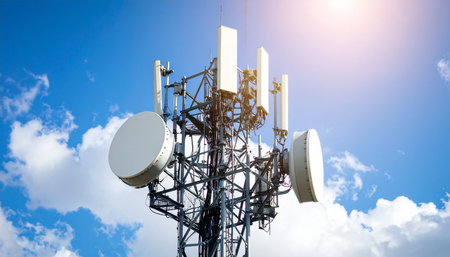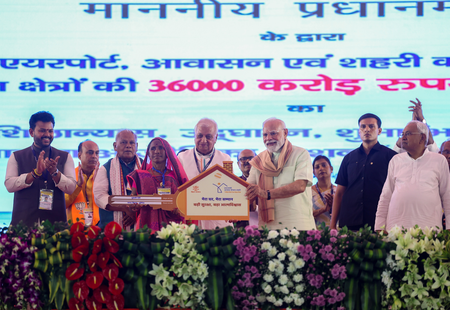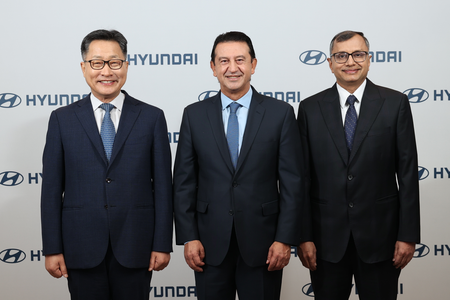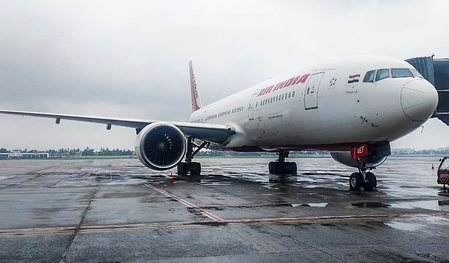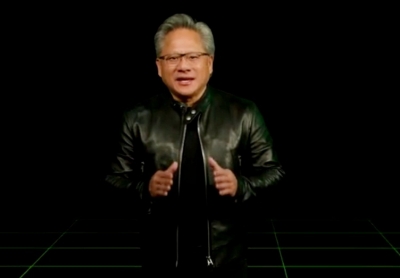
Seoul, Oct 31 (IANS) South Korea can advance as a global leader in physical artificial intelligence (AI), expected to be the next wave of the fast-evolving technology, AI chip giant Nvidia’s Chief Executive Officer (CEO) Jensen Huang said on Friday, highlighting the country’s competitiveness in the industry.
“AI has now achieved the virtuous cycle,” Huang, who is visiting Korea for the first time in 15 years, said in a special session for the Asia-Pacific Economic Cooperation (APEC) CEO Summit held in the southeastern city of Gyeongju.
Huang said AI has penetrated into people’s lives, inducing more usage, which leads to more profit for companies, which ultimately leads to better AI, reports Yonhap news agency.
“For Korea, this is an extraordinary opportunity,” the AI visionary said.
Korea is one of the very few countries that have the three “fundamental, essential and necessary” qualities in order to succeed in the AI industry — software expertise, deep technical and science capabilities, and advanced manufacturing — he stressed.
“When you combine software, AI technology and manufacturing, you have the opportunity to really take advantage of robotics. This is the next generation of physical AI.”
Huang, the founder of Nvidia, a major force behind the rise of generative AI, such as ChatGPT, has been pointing to physical AI as the next wave of revolution for the cutting-edge technology.
Physical AI refers to the inclusion of AI in physical devices, such as robotics, machines and autonomous vehicles. The technology is expected to bring massive change to people’s lives, enabling humans and robots to work alongside each other.
Huang said Korea is an important partner in Nvidia’s vision for the industry, touching on its plan to extend partnerships with Korean companies, which was announced earlier in the day.
Nvidia earlier said it will deploy up to 260,000 graphic processing units (GPUs) in South Korea in partnership with the government and major companies here, including Samsung Electronics Co., SK Group, Hyundai Motor Group and Naver Cloud Corp., to build large-scale AI factories in the country.
Samsung, SK and Hyundai Motor will each deploy up to 50,000 GPUs, while Naver Cloud will install around 60,000 units, bringing the total to 260,000.
Nvidia said the Blackwell-based infrastructure will boost South Korea’s total installed AI GPU capacity from about 65,000 to more than 300,000 units, positioning the country as one of the world’s largest hubs for AI computing outside the United States.
“Now we are going to advance AI together, build AI factories together and build digital twins together,” Huang said.
In a separate press conference, the Nvidia chief said, with the fresh deal between his company and South Korea, the country will become an AI hub for the region, attracting startups and companies from other countries to invest and operate here.
He also praised Samsung Electronics and SK hynix, key partners for Nvidia’s chip production, for their memory technology capabilities involving high bandwidth memory (HBM) products.
“I am 100 percent confident that Samsung and SK hynix Inc. will be long-term partners,” Huang said. “We will continue to be incredibly close partners to advance the future of memory technology … Korea is world class in memory technology.
Asked to compare Samsung and SK, Huang said they both have “incredible” capabilities, with SK more focused on memory and Samsung showing more diversity.
The APEC CEO Summit, which wrapped up its three-day run following the Nvidia chief’s session, is the official business gathering of the annual APEC leaders’ summit that commenced earlier Friday in Gyeongju.
—IANS
na/

